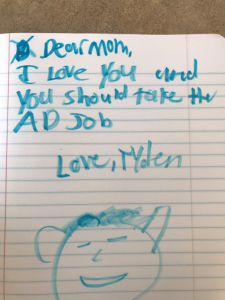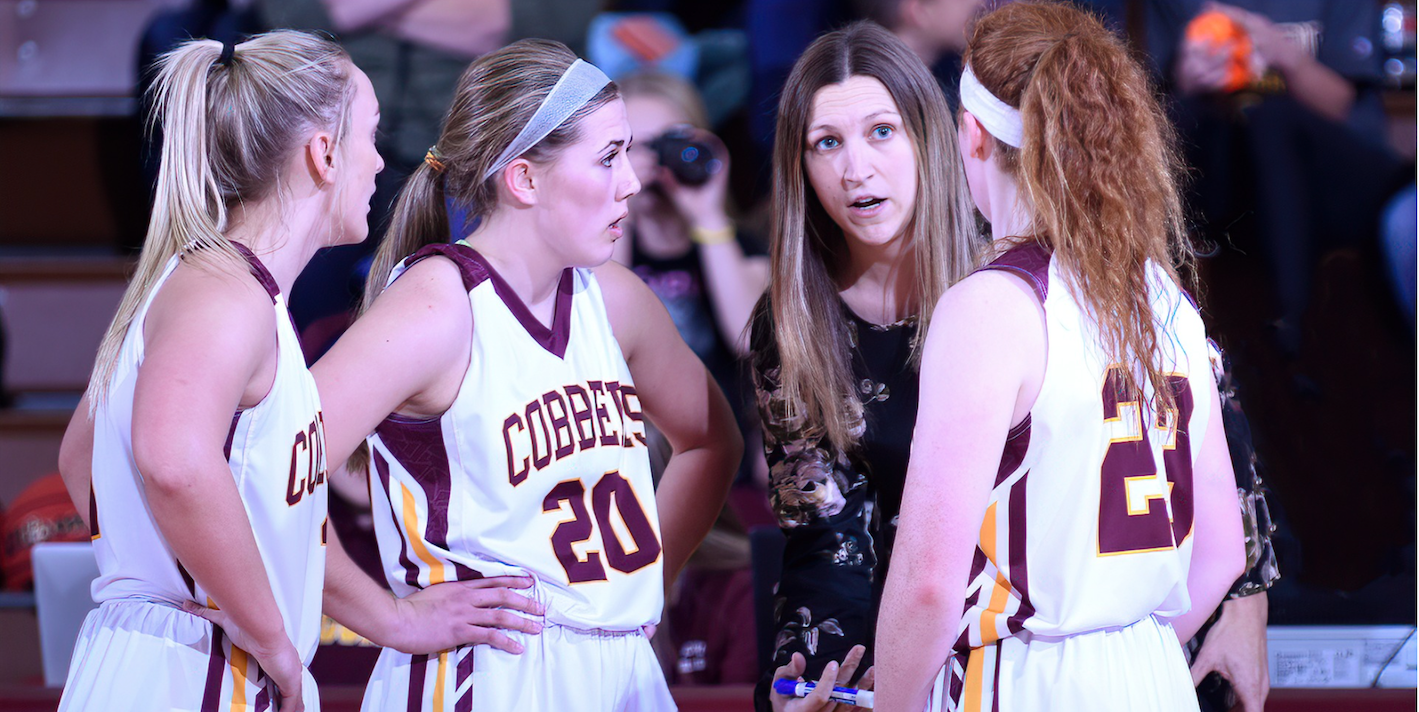Rachel Bergeson knew that taking the athletic director job would mean either she or her husband would have to sacrifice something. Her husband would have to give up coaching to help with childcare. Bergeson could have potentially lost her impressive career ahead of her.
Late one evening, Bergeson and her husband were discussing the pros and cons when a rustling was heard outside their bedroom door. Bergeson investigated and found a note from her oldest son, who was eight years old at the time, that said: “Mom, I love you and you should take the AD job.”

For Bergeson, that night marked her decision to become the first female athletic director of Concordia College.
Ever since her promotion in 2018, Bergeson has made steady progress toward gender equality in Concordia’s athletic department. Her efforts came to fruition this year when the Tucker Report, an annual evaluation of gender diversity in head coaching in the Minnesota Intercollegiate Athletic Conference, gave Concordia an A.
The report is run by the University of Minnesota’s Tucker Center. Although this report focuses primarily on MIAC colleges, NCAA demographics and national statistics are considered during evaluation.
This year’s results conclude that Concordia is the only one of 12 colleges in MIAC Tucker report that received an A, with 70% of head coaching positions for women’s sports at Concordia being held by women. Eight out of 12 of the MIAC institutions had less than 50% of women in head coaching positions.
Despite Concordia’s high numbers this year, five years prior the college received an F for having only 10% of women in head coaching positions. With the leadership of Bergeson, Concordia has increased from 10% in 2018, to 70% in 2021.
“When we received an F five years ago, it wasn’t just about getting an A or about hiring women. It was about hiring the best person for the job and diversifying our pool of candidates to attract women to apply for our positions,” Bergeson said. “These are not token hires. These are quality women coaches.”
Although major progress has been made, the road has not been easy. As the first female athletic director, Bergeson has faced her fair share of challenges.
Athletics is primarily a male-dominated field. The NCAA demographics database reports that in 2020 across all divisions, 76% of athletic directors were men. Psychologist and Concordia professor Dr. Elizabeth Ewing Lee said this is largely caused by societal perceptions of gender that depict men as more successful leaders.
Bergeson and other women in Concordia athletics have realized this, and, in response, adopted their own motto: “If I can see her, I can be her.”
Head women’s basketball coach and senior woman administrator, where she promotes representation of women in leadership of college sports, Kim Wagers said this phrase applies to her life growing up and still into today.

“I remember sitting in the gymnasium as a young girl and looking up to the female players. I remember thinking that’s what I want to be,” Wagers said. Having female role models, especially one in Bergeson, made it possible for Wagers to feel more confident in her pursuit of leadership.
While there is research proving this concept, Dr. Ewing Lee also argues that gender is not nearly as relevant as the aptitude for empowerment a coach has when interacting with athletes.
“Anyone who is a leader has an impact on the way you can perceive yourself. Coaches have direct contact and give feedback constantly and will have a large impact on athletes in and outside of athletics,” Dr. Ewing Lee said.

Senior captain of women’s basketball Autumn Thompson said she grew up surrounded by sports and said she feels more receptive to feedback from a female coach because gender connects them. Moreover, Thompson said she is more likely to confide in her female coaches.
“I was able to completely open up to them. I truly don’t know what I would have done without them. That’s where I appreciate a female coach because men can sometimes not be as intuitive about feelings, especially in a coaching position.”
Thompson is grateful that her coaches at Concordia are involved in her life both in and outside of sports. They keep her accountable in practice, monitor her academic life and check in with her emotionally.
“We are trying to take a holistic approach to help them get them where they want to be,” Wagers said.
There is a traceable line of inspiration at Concordia. Thompson looks up to Wagers, who looks up to Bergeson. Wagers said supporting and advocating for each other as women have made Concordia athletics stronger.
Concordia would not be in its current position without Bergeson, according to the Tucker report. One woman can make a difference for many others. Bergeson said often the hardest part of woman leadership is taking the first step.
“Have the courage to take the job, because I almost didn’t,” Bergeson said.

